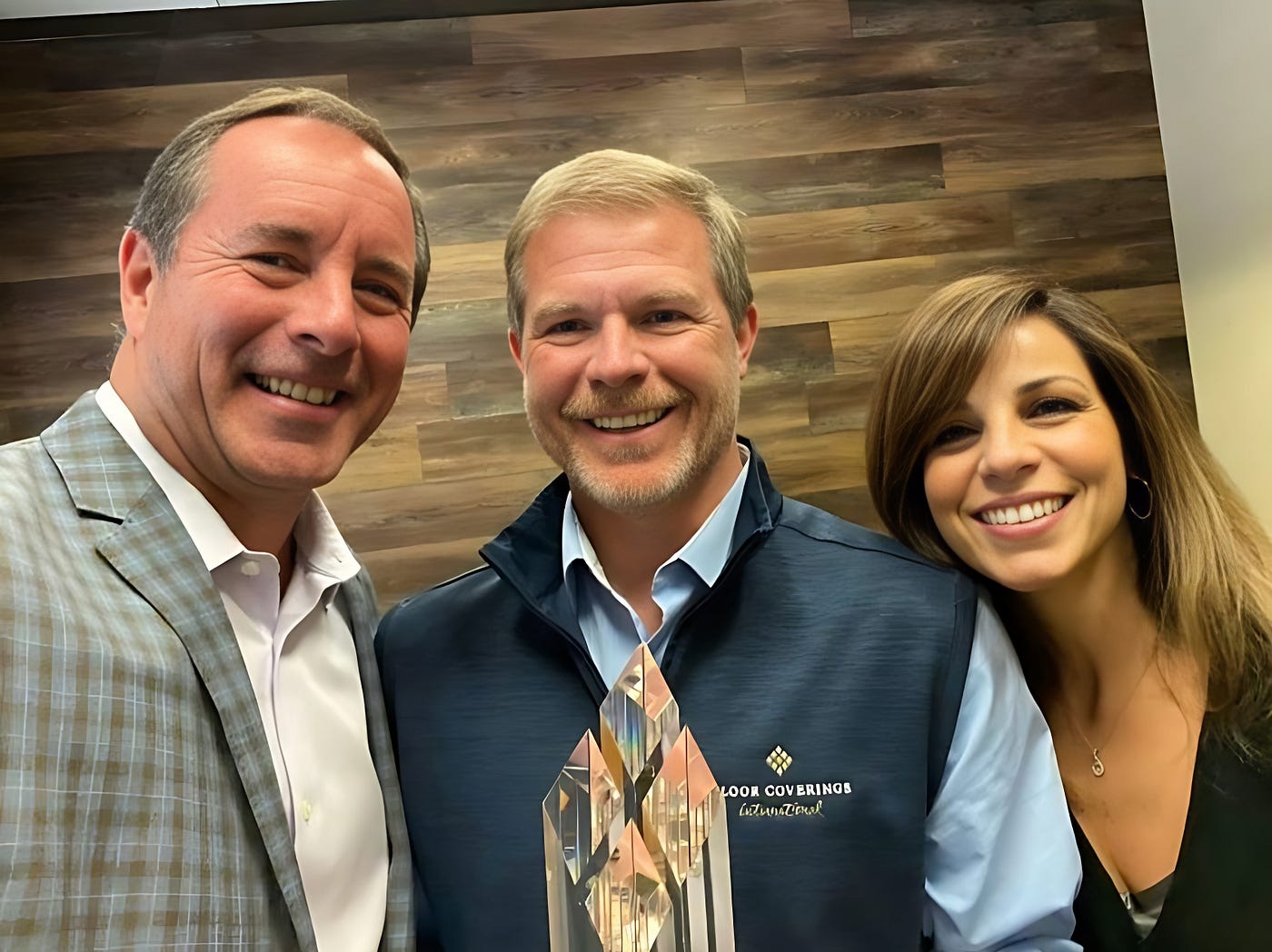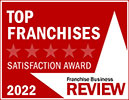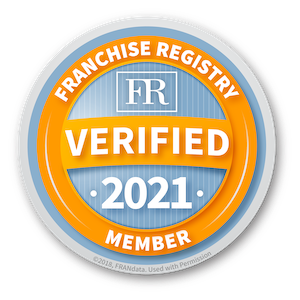Tom Wood of Floor Coverings International: Five Things I Wish Someone Told Me Before I Became A CEO
This article was originally published in Authority Magazine in Medium on October 17, 2023.
Thank you so much for joining us in this interview series! Before we dig in, our readers would like to get to know you a bit more. Can you tell us a bit about your “backstory”? What led you to this particular career path?
I became a business owner at 18-years-old, operating a College Pro Painters franchise. After a few years of running my own franchise, I joined the executive team post-college. Fast forward several years I saw that there was a need for a year-round painting service which is when I founded and launched Certa Pro Painters. In 2005, I officially joined Floor Coverings International as the acting CEO and help guide the company to becoming the №1 rated flooring franchise in North America.
Can you share the most interesting story that happened to you since you began leading your company?
Definitely COVID. Just like the rest of the country, we closed down and were expecting the worst. But within just a month, we realized we had an incredible opportunity in front of us to change the way we serve our customers. The corporate team and our franchisees moved quickly to get back up and running, using various innovation tactics to fit the COVID protocols. What came of this? Our franchisees thrived like never before.
Can you share a story about the funniest mistake you made when you were first starting? Can you tell us what lesson you learned from that?
I don’t necessarily have a funny story, but the lesson I learned throughout the years is that you should never go as slow as the world or people around you tell you to go. Have faith in your capabilities and go at a pace that’s comfortable for you.
None of us are able to achieve success without some help along the way. Is there a particular person who you are grateful towards who helped get you to where you are? Can you share a story about that?
Three people immediately come to mind: Charlie Chase, CEO of FirstService Brands; Catherine Monson, CEO of Propelled Brands; and Shelly Sun, Founder + CEO of BrightStar Franchising. I admire each of their individual leadership styles and the cultures they have built within their brands. Each have piqued my curiosity to continue to learn more about franchising and being an effective leader.
Leadership often entails making difficult decisions or hard choices between two apparently good paths. Can you share a story with us about a hard decision or choice you had to make as a leader?
Sometimes the people who have helped get you to where you are today won’t be the ones to get you to where you need to go. This is one of the toughest realizations I have had — that people who were loyal to me and the company, and poured themselves into the work, weren’t going to be the ones to help us reach our end-goal.
Most of our readers — in fact, most people — think they have a pretty good idea of what a CEO or executive does. But in just a few words can you explain what an executive does that is different from the responsibilities of the other leaders?
I definitely have renewed clarity on this piece — a CEO’s job surrounds the “what” and “why” but they do not need to get involved in the how. You have to trust your people to execute that part, but give them the tools and resources that enable them to execute. I’ve realized that when I get involved in the “how,” it slows my team down. It’s a constant battle for me, but one I get better at every day.
What are the “myths” that you would like to dispel about being a CEO or executive? Can you explain what you mean?
The CEO does not need to be brilliant and the subject matter expert in every, or most, aspects of the business. The CEO needs to be a leader and the visionary — that’s what helps keep everyone else on track to be the best at their jobs.
What is the most striking difference between your actual job and how you thought the job would be?
When I originally took on this role it was for the purpose of turning the company around, and it was very hands-on at that point. I was getting involved in a lot of the “how” because that’s what was needed. But then it transitioned to letting go of the reigns a bit, and trusting the people in the company.
Do you think everyone is cut out to be an executive? In your opinion, which specific traits increase the likelihood that a person will be a successful executive and what type of person should avoid aspiring to be an executive? Can you explain what you mean?
No, not everyone is cut out to be an executive. Each executive role is vastly different as well. For example, the CEO is tasked with always engaging in the today and to determine how they will get to tomorrow and the next year. The COO’s role is to ensure what happened today is operating properly, efficiently and improving from yesterday, last week, or last year.
Some top characteristics that an executive should possess are humility, a willingness to make sacrifices, and the ability to trust in their team. A good CEO puts strong people in the right seats, and lets them do what they need to do.
What advice would you give to other business leaders to help create a fantastic work culture? Can you share a story or an example?
Engage with people, those who are both inside your organization and outside of it. I make it a point to sit back and see if there is a smile on my employee’s faces, or if there’s something else. If there isn’t a smile, I know something isn’t working the way it should be.
How have you used your success to make the world a better place?
It gives me great pride that I’ve been able to be a part of franchisees prospering — from personally to professionally to financially, for themselves and their families.

Here is the primary question of our interview. What are your “Five Things I Wish Someone Told Me Before I Became A CEO” and why? (Please share a story or example for each.)
Understand the Role: Recognize that you are the visionary of the organization and need to think three to four steps ahead. Your role is not so much engaging in what’s happening right now, but more along the lines of determining where you are now, where you need to get to, and setting up the path to get there.
Embrace That You Don’t Need and Shouldn’t Be the Smartest: As CEO, it’s important to know that you don’t need to be the smartest person in the room. If you are the smartest in the room, or subject matter expert in several areas, then you haven’t embraced the crucial part of your role that is building your team and each department to have smart leaders. A lot of people think they need to be the most capable and smartest at the organization, but that’s a myth. Pursue leaders who are experts in their field to fill out your organization chart.
Know How to Build an Effective Team: Realize that you likely won’t have the exact same people next to you each step of the way on your career journey. You may feel a great sense of loyalty to these people — the ones who helped you find the business, grow it, sustain it, etc. But these won’t always be your long-term people. You have to pause and question if a person can get you where you need to be at the end of the road. Your organization only goes as fast as your weakest link — ask yourself if you are the one who put that person in that seat.
Determine Your “Why”: Once you clearly recognize your role, see four steps ahead, and have the right people in the right seats, determine what your “why” is. The “what” and “how” of the organization are more procedural — leave that to your operational expert. The CEO needs to be the one to ask why for every challenge and decision that’s made. Get your people engaged in those “why’s” as that is the piece that holds everything together.
Prioritize Your Business’ Culture: As a CEO, you are the barometer of the organization and cultural leader. The culture is what makes the work meaningful and what keeps people together during challenging times, which every business will have at some point. It also serves as a key differentiator between your organization and the next. For Floor Coverings International, culture attracts the ideal franchisees and corporate employees and it permeates through everything we do. Ask yourself if you are checking in with your peers outside of a meeting and ask them what the fun part of their job is. You will always have people that can work hard — but you need to ensure they are enjoying their job and peers.
If you could inspire a movement that would bring the most amount of good for the greatest number of people, what would that be? You never know what your idea can trigger.
The movement I would inspire would surround people working together. Whenever I have seen people get behind something and get the most accomplished, there was someone sitting in that visionary role. There was a person bringing people together to unite on something, and then letting them inspire others. Groups like that need a leader, and they can accomplish more that way.
Can you please give us your favorite “Life Lesson Quote”? Can you share how that was relevant to you in your life?
Embrace the fact that you don’t need to be great at everything. You are better as part of the sum of the company, which is something I have learned throughout my career that has made me a stronger leader.
Is there a person in the world, or in the US with whom you would love to have a private breakfast or lunch with, and why? He or she might just see this if we tag them!
Pat Riley, the president of the Miami Heat; I’m an avid Heat and NBA fan so this would be a dream. I want to understand how he, his life, and his career have been able to constantly infuse a culture of greatness — and in every stop he has had.
Thank you for these fantastic insights. We greatly appreciate the time you spent on this.





